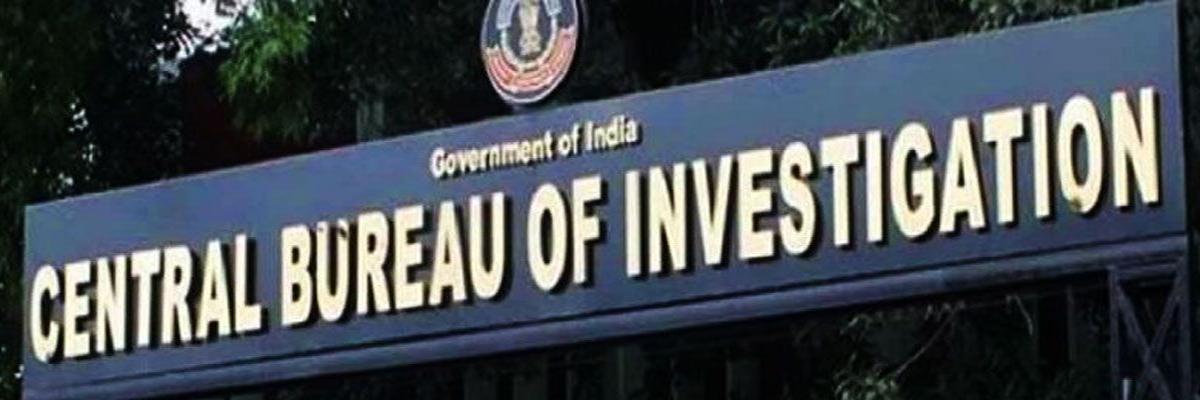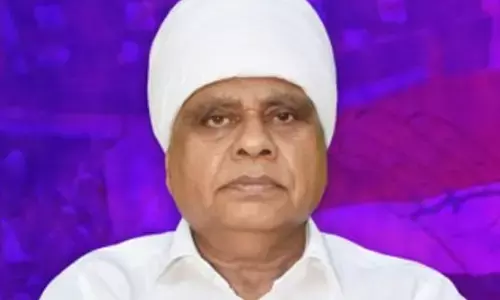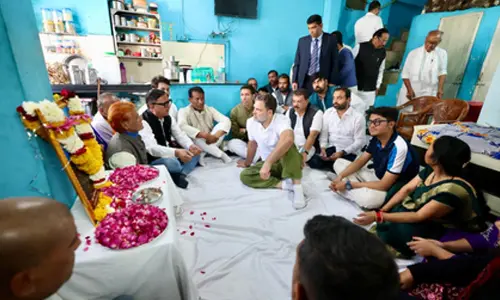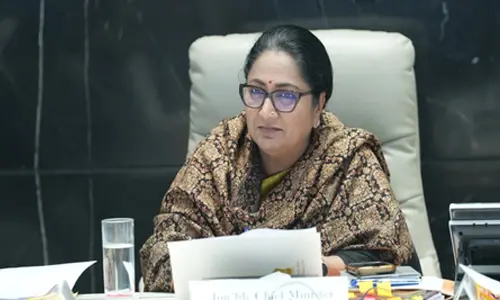Perils of penchant for publicity

Publicity, no doubt, is good, especially in the context of a government disseminating information about the success of its programmes Like all good things, however, an overdose of it can be harmful Alok Verma of Central Bureau of Investigation CBI must have realised it when the Supreme Court, miffed when his response to an inquiry report which he was required to file in the court on a stipula
Publicity, no doubt, is good, especially in the context of a government disseminating information about the success of its programmes. Like all good things, however, an overdose of it can be harmful. Alok Verma of Central Bureau of Investigation (CBI) must have realised it when the Supreme Court, miffed when his response to an inquiry report (which he was required to file in the court on a stipulated date) appeared in the news portal “The Wire”, demanded an explanation from his lawyer, days before it was due in the court.
Civil servants, by definition, are expected to be an invisible entity. It is the elected representatives of the people who are to be seen by the public and to engage in discussion with them. After all, when we look at a clock, we only see the three hands. Unless we dismantle the whole machine, we cannot see the toothed wheels, the springs and other parts that make the clock go. And this is only as it should be for; otherwise, one would not know where to look to tell the time of the day.
The same is the position with the official machinery in a democracy. It aids, advises, and assists in the formulation and implementation of programmes approved by the political leadership. While the bureaucracy plays its role in telling the leadership what can work and what will not, the ultimate responsibility rests with the political boss. The buck, as President Trump of the USA said, stops there. Having done his duty without fear or favour, the civil servant can neither hope to take credit for what succeeds nor be worried about the fallout of failure.
This columnist retired from the civil service and is, therefore, aware of the rules that govern interaction by a civil servant with the media. In the normal circumstances, one is not supposed to go to the press at all. And if one must, due permission must be obtained in advance. No doubt, there are exceptions to these restrictions like, for instance, in the case of the post of a District Collector, the Director of Information and Relations in a State or the official spokesperson of a department, organisation or agency; such as the spokesperson of the Ministry of External Affairs of the government of India. Barring these exceptions, civil servants are expected to remain on the sidelines, largely unseen and, if visibility is inevitable, at least unheard.
For example, if a Minister, while interacting with the media, commits a faux pas, the officer accompanying him can hardly wrench the mike away and make amends. He or she can, at the best, slip a note to the Minister stating the correct position. Similarly, when a Minister makes a mistake while making a statement or replying to a question in Parliament or State Legislature, mixes up his papers and makes a gaffe, the officer sitting in the gallery can send him a note to clarify matters. Surely, he or she can hardly stand up and shout out the correction!
It is regrettable that, in recent times, the anonymity which was the hallmark of the quintessential civil servant is yielding place to a weakness for publicity and, sometimes, for less than noble reasons. While serving officials are becoming increasingly bold in going public, some retired ones have made it a lucrative profession altogether. The latter, in their newfound capacity as free citizens, are divulging little known facts about the goings-on in the corridors of power, thanks to their once having been privy to them. And unfortunately, as a result of the feeling that controversial revelations will increase sales of their works, these exposes are causing considerable harm to the public interest.
Those who work in specialised investigating agencies, such as the Intelligence Bureau (IB), the Central Bureau of Investigation (CBI), or the Research and Analysis Wing (RAW) of the government of India are naturally in the know of many of the intrigues that happen in high places. If, after having been selected to serve in such places on account of their carefully vetted credentials, they succumb to the temptation of leaking out information about the happenings, either for selfish purposes or for reasons of publicity, incalculable harm will result to the interests of the country. What is worse, people are increasingly resorting to giving their own version of the events to the media.
The media, on the other hand, which would do well to rely upon properly released official version, are quite happy to ride with such leaks and add their own spice before publishing them. Voltaire said that democracy is safe when the press is free and the people are literate. Illiteracy is no longer the alarming issue it was decades ago and the country can also safely claim that the media enjoy all the freedom they can also for, in fact, just short of license! Increasingly, print and electronic media are succumbing to the temptation to let commercial considerations take precedence over objectivity in the treatment of news and views; so much so that people are justly wary about their interaction with them, lest the subject matter become sensationalised or shown out of context.
And, in social media, such items are going ‘viral” resulting in what is now being called an ‘instant trial’, by the media, of the issues and persons involved. Long before the truth comes out through legitimate channels, the public is becoming subjected to the overwhelming influence of unverified claims. This is much more so when the media are able to take liberties with the material under the guise of expressions such as “reportedly”, “undisclosed sources” and “reliably learnt” etc.
The whole country watched aghast as the top two officials of the CBI, Alok Verma and Rakesh Sinha, indulged in tirades making sensational allegations against each other, all of which were publicised widely in the print and electronic media; so much so that they forced the hand of the Central government which finally asked both of them to go on leave. Aggrieved by the decision, Verma filed a case in the Supreme Court challenging his removal. Noting the mutual allegations made against each other by the two top officials, the Supreme Court handed over the matter for enquiry to CVC, (Central Vigilance Commission) under the supervision of A K Patnaik, formerly a Judge of the Supreme Court asking him to complete the enquiry in two weeks.
Upon receipt of the report, the court handed it over to Verma in a sealed cover asking him to furnish his response in a sealed cover on November 19. Until that point of time it looked as though the court was sympathetic to his case as it was speeding up matters. But, on November 19 the court observed that a news portal “The wire’’ had already carried a report on Verma’s response. This really irked the court which, in the first instance, refused to carry on with the case. When Verma’s lawyer asked for an opportunity to clarify, the court relented and agreed to hear him later in the day, after all matters listed for that day are heard. Before taking up the matter, they asked Verma’s advocate whether this was really the proper way of handling things. The case now stands adjourned to November 29. The court’s vacation begins on December 14. Thus, there is no knowing when the case will conclude. And, in any case, Verma is due to retire on February 1. Whatever the outcome, it is clear that he will remain the loser.
The Deputy Inspector General (DIG) of CBI, Manish Sinha, also can take a lesson or two from Verma’s case. He filed a petition in the Supreme Court, mentioning the names of the National Security Advisor (NSA), a Union Minister and the Central Vigilance Commissioner (CVC) alleging attempts to interfere into probe against Rakesh Asthana. And, the very next day, he released it to the press. Taking umbrage to the various media reports based on his petition, a clearly irked court observed, “Here is a litigant who mentions it before us and then goes out to distribute the petition to everyone,” further remarking, “This court is not a platform for people to come and express whatever they want... This is a place where people come for adjudication of their legal rights.” Publicity can, thus, on occasion, be a double-edged sword.
















